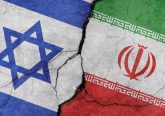The announcement by Egypt’s Defense Minister, now Field Marshall, Abdel-Fattah El Sissi that he would be running for president was greeted with joy and with apprehension, not only in Egypt, but also in the Gulf States. If current trends hold, it seems increasingly likely that El Sissi will be comfortably elected to serve as president of Egypt for at least the next four years. Egypt’s relations with the Gulf States under a potential El Sissi presidency will largely be shaped by the positions these states have taken in the past few months.
Saudi Arabia, Kuwait, the UAE and Bahrain, who considered the Muslim Brotherhood to be a significant domestic threat, have strengthened relations with Egypt following the overthrow of former president Mohammed Morsi. Saudi Arabia, Kuwait and the UAE, who welcomed Morsi’s overthrow immediately pledged $12 Billion to post-Brotherhood Egypt, increasing their assistance in the subsequent months. If elected, President El Sissi will look to build on the current relationship with these states, possibly by visiting Riyadh, where he previously served as military attaché, and Abu Dhabi soon after the election. Although the UAE’s Prime Minister stated in an interview with the BBC that he “hopes (El Sissi) remains in the military, and that another person [runs] for the presidency”, a clarification was soon issued by the official news agency saying that the “brotherly advice is that General al-Sissi should not run as a military man for the post of the presidency”. El Sissi has already stated that Saudi’s support for Egypt will “never be forgotten” and expressed gratitude for the UAE’s aid.
The least vocal of the Gulf States, Oman, has also made its preferences clear in regards to its relationship with Egypt. A few days after the bloody crackdown on Muslim Brotherhood protesters in Rabaa Square last August an Omani daily close to the government wrote in an editorial that the Sultanate stands with Egypt’s leadership in “all the necessary steps taken by it to maintain peace”. An official statement was also released by Oman media in support of Egypt’s government on the third anniversary of the January 25th uprising condemning the violence that marred the celebration. Oman, which has no notable Brotherhood presence, is partly motivated as a result of its diametrically opposed view with Egypt’s Muslim Brotherhood towards Syria. Oman considers events in Syria to be an “internal affair”, and in an interview with London-based Al Hayat, and carried on Al Monitor, the Omani foreign minister said that he told members of the Syrian National Council “they need to reexamine their opinions, because killing, destructing and displacing Syrian civilians are unacceptable.” Morsi’s presidency had thus been seen as problematic to Oman because Morsi had proclaimed that “Egypt’s leadership, people and army will stand by the Syrians”, a statement that the army, including General El Sissi, had refuted the next day.
There is no doubt that the biggest loser in the Gulf from the election of General Sissi would be Qatar, whose relations with Egypt have deteriorated significantly over the past few months. Qatar enjoyed especially close ties with the Brotherhood; its operational leader Khairet El Shater was a frequent visitor to Doha discussing “the coordination between the Brotherhood, the Freedom and Justice Party and Qatar”. Qatar had backed the Brotherhood government in Egypt with almost $8 billion as well as providing favorable media coverage for the group through its then popular Al Jazeera network. Following the July uprising/coup Qatar’s close ties with the Brotherhood turned from being an asset to a liability almost overnight. Qatar criticized the August 2013 crackdown and called on the new Egyptian military government to “refrain and relinquish” their heavy-handed approach. Al Jazeera channel’s offices in Egypt were swiftly shut down and its journalists expelled while several of those who remained were jailed. Relations further deteriorated when Doha issued a statement accusing Egyptian authorities of having a “shoot-to-kill policy” towards protestors. Cairo then summoned the Qatari envoy and both the acting president and the spokesman for Egypt’s Foreign Ministry warned, “patience and tolerance towards Qatar has limits”.
Despite its desperate need for funding, Egypt has opted to return $3 Billion to Qatar and plans on returning a further $3 billion by the end of 2014. According to Al Ahram, the Brotherhood had given Qatar a number of assurances in exchange for Doha’s generosity including “technical support” for the Syrian opposition, the rotation — possibly to a Qatari citizen — of the Arab League Secretary General post, and “Egyptian approval of Qatari nominees on behalf of the Arab group in several international and regional forums”. It can be assumed that these assurances are no longer applicable in the light of the changes in Egypt’s leadership.
For most countries in the Gulf, therefore, an El Sissi presidency will bring a familiar, trustworthy and capable partner on issues of common concern such as Iran, the Middle East peace process and Turkey. On the other hand, Qatar’s continued support for the Muslim Brotherhood in exile will likely be seen as a direct challenge and threat to Egypt’s new popular strongman. This may result in the further deterioration of relations.
This post is part of Revolutions in the Balance, a our blog series which focuses on the Middle East following the Arab Spring.








No Comment